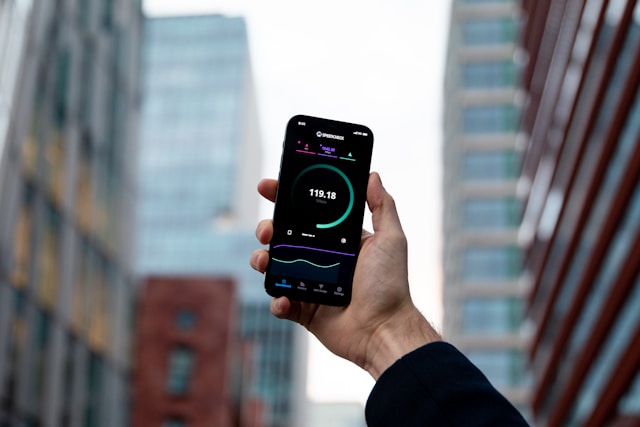How the Rollout of 5G Networks Will Impact Educational Practices
5G networks have been a controversial topic for a long time due to misinformation and the novelty of this technology. Today, most of these myths have been dispelled, and we know that there are no inherent dangers to using 5G internet. However, the vital question is, could faster connection revolutionize online education and also influence classroom learning?
The short answer is, yes, there will likely be significant changes in how and where we study. Read on to learn more about the general tendencies we can currently see.
No connection: Will 5G solve the issue?
It's no surprise that many students stay silent during classes since they might suffer from a slow internet connection. What’s the point of saying anything if those words only reach everyone when the discussion has moved on? Well, 5G might be just the technology we need to change this tendency. With the seamless and secure connection it offers, you can listen to your professor and react in real time, without waiting for your words to come through. Will this also make it easier to buy a thesis paper online? Perhaps, but more productive classes will definitely minimize the risks of misuse of such materials.
Another important thing 5G can provide is better learning experience from mobile devices. With this type of connection, you could study from your tablet or phone without ever worrying that the internet will be so slow you won’t be able to understand what your professor is saying. For many students, that’s a dream come true.
New opportunities in remote learning
It goes without saying that better connectivity means better quality of interactions between students and teachers, but it also means that educators will be able to implement new technologies during their online classes. Here’s what it boils down to:
- Using augmented reality (AR) and virtual reality (VR) during classes. 5G has high bandwidth, which means educators could easily create immersive learning environments and interactive 3D models with this kind of technology. Classes would certainly become less tedious if it was reality!
- Making the internet of things (IoT) more real and useful. If we’re talking about offline learning, 5G smart boards and other high-profile devices could definitely make a difference in how we learn. Educators could show you almost everything they talk about, and that’s really exciting.
- Enhancing the general accessibility of education. All these innovations can take us a few steps closer to the fully inclusive education that’s available in most places on Earth. When you think about 5G that way, it becomes clear that it could significantly improve the lives of thousands of youngsters who can’t pursue their learning goals because of poor connectivity, which might seem like a mundane issue at first.
Will online collaboration become the same as offline?
Many online students dislike group projects not because they’re not fun for them but because it can be nearly impossible to effectively collaborate when at least one participant has poor connectivity. Now, imagine the reality where you can communicate with all your group mates in real time and see what they’re doing, as well as show your own progress.
If that sounds like a perfect dream, well, 5G is about to make it a reality! The possibilities of this technology include facilitated collaboration and secure cooperation. This means you’ll be able to work on any projects together with your friends as if you were sitting in the same room. Of course, face-to-face communication is extremely valuable, and it’s impossible to fully replace it. However, the 5G internet connection can make your learning process as convenient and close to offline as possible, which is a big step forward.
Let’s hope that 5G will make education more accessible
Like any relatively new technology, 5G connection has a good chance to alter the way we study, making our daily lives more comfortable. Who doesn’t dream of seamless connectivity without hiccups? After all, such technology allows real-time collaboration and active participation in each and every class you attend.
Faster internet can be a game changer for many students who stay silent during class, leading teachers to assume that these learners aren’t focused and immersed in their studies. 5G can fix such issues and provide us with top-level experiences in the fields where quality matters most, and education is definitely one of such fields.

